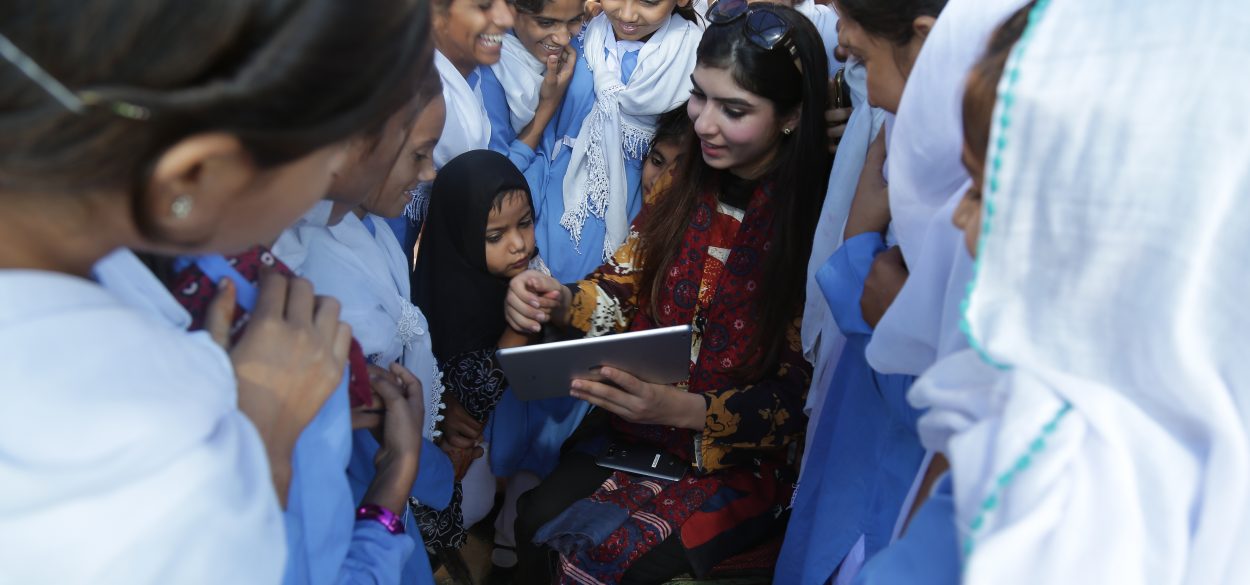
How can parents protect kids against cyberbullying?
Safeguard
Safeguarding planet, people and data in the digital world and beyond
Safeguard means that Telenor constantly raises the bar for the safety, security and privacy for our customers, partners and employees, as well as the health of our planet to drive positive, long-term change.
Telenor’s experts on child online safety promote open dialogue and advise against screen time bans and snooping.
As the online world becomes more complex and nuanced, and with children spending more time online due to the pandemic, it is crucial for parents to safeguard them against online harm.
In the run-up to Stop Cyberbullying Day on 18 June 2021, we conducted a poll among Telenor employees about questions and issues they are grappling with regarding their children’s online usage and instances of cyberbullying. Our Child Online Safety (COS) experts answered the three most voted questions and provided advice on issues that parents and guardians often face.

Also read: A Young Woman’s Perspective on What Makes A Safer Internet
What is the best way to guide my child to identify and deal with online harms?
Ana Brodtkorb, Head of Sustainability, Telenor Norway: With so much literature out there, there isn’t exactly a one “best way” to approach COS. However, there are three things to always keep in mind:
Be online: First and foremost, log on. You cannot guide if you are unfamiliar with the territory. Stay curious and learn from your children since they are digital natives.
Talk about it: Talk to your children about what you and they experience online, as you talk about everything else in your lives. Build trust, so you are ready for difficult conversations when the need arises. Assure them that even if they stumble and get into a difficult situation, they can always come to you.
Use privacy and security settings: Talk about privacy and why one must be careful when sharing personal information online. Learn, understand and use privacy and security settings yourself so that you can teach your kids.
Habiba Sardar, Manager, Corporate Sustainability, Telenor Pakistan: Communication is key. It is crucial to be open, approachable, and understanding. This makes it easier for children to approach an adult, share problems they are experiencing online and ask for advice. Taking an active role in your kids’ internet activities ensures that potential dangers online are minimised. Adding onto Ana’s tips, other best practices include:
Keep personal information private: Always remind your kids never to reveal personal details such as home addresses and phone numbers. Don’t share anything on social media that they wouldn’t want their parents, teachers, and, yes, grandma to see.
Think twice before hitting “enter”: Always remind your kids that, once they’ve posted something, consider it permanent. But also make sure you support them if they make mistakes. They need to hear that there are ways to bounce back if something goes wrong. It’s not the end of the world.
Don’t “friend” strangers: “If you don’t know them, don’t friend them.” This is a plain, simple and safe rule of thumb. Always verify if requests are coming from someone you do know, and never agree to a private chat with a stranger.

At what point should I step in/intervene in their online usage?
Habiba: It’s important for parents to be aware of what their kids read, post, and do online. But snooping can alienate them and damage trust. It’s crucial to keep an open communication, so they understand you respect their privacy and that they can ask questions when there’s a problem.
Changes in behaviours can indicate trouble. Here are some warning signs:
withdrawn from activities, family, and friends
spending long hours online, especially at night
phone calls from people you don’t know
unsolicited gifts arriving in the mail
your child suddenly turning off the computer when you walk into the room
Ana: This is a delicate question. As Habiba rightly pointed out, snooping is a touchy issue. In the last couple of years, we asked parents if they snooped on their children’s phones (in Norwegian), and over half of them did. 65% of children asked didn’t like their parents’ intrusions. Though children have the right to privacy and personal life, that must be balanced with keeping them safe, which is part of the parents’ responsibility. Striking this balance is not an easy job!

Learn how to protect your child’s privacy in the new normal
How much should I control my children’s internet or screen time?
Habiba: Setting limits on screen time for kids isn’t always easy in today’s screen-filled world, especially due to the wide variety of screen-time activities. For example, during the pandemic, the way our children learn and interact has significantly changed, and digital learning has been essential for educational development across the world. With that backdrop, adding up how much time they need for all activities, including learning and leisure, could determine what constitutes a reasonable limit for screen time for children at different development stages.
Ana: Firstly, I would start with not using the word “control” and instead consider a more positive term, like “balance” or “management.” Younger children need more guidance and limitations than older ones. For youths, being online is important on so many levels; information, entertainment, doing homework and more. During the pandemic, being able to meet friends online has been vital!
It is also possible to be prudent by not focusing on the hours but whether the activity is essential. To find out, talk with your children about what they are doing online and why it is important for them. You might find that you and your kids are online for the same reasons. To build on this point, trying to set limits for your kids can be easier if you reflect on your own screen time. Experiment with periods of no screen time for the entire family. Plan fun activities for the family, so the children experience these offline family times as good times!
Interested in more? We highly recommend checking out the following COS experts-approved resources for parents:
Digiworld – a curriculum designed to help children, aged between 5 and 16, to develop the knowledge and skills they need to navigate the online world in a safer and more enjoyable way.
Mobilmerket (only in Norwegian) – a playful and educational exercise that makes your child well equipped for a life with their mobile.
The digital parenting school (only in Norwegian) – experts provide insight and knowledge about children and young people’s lives online.
Bruk Hue (only in Norwegian) – free lessons for teachers to use in the classroom on cyberbullying and cyberbullying developed in collaboration with partner Red Cross.